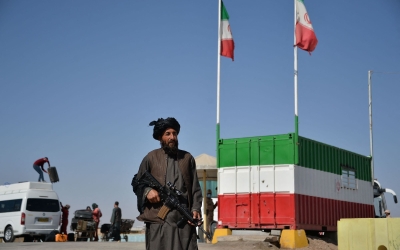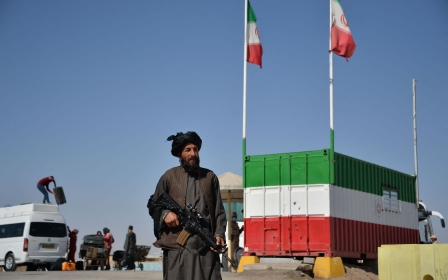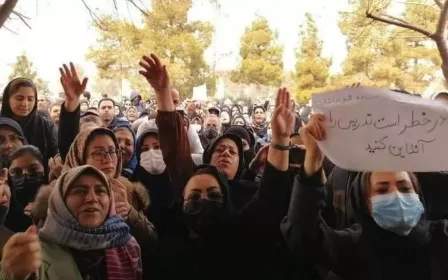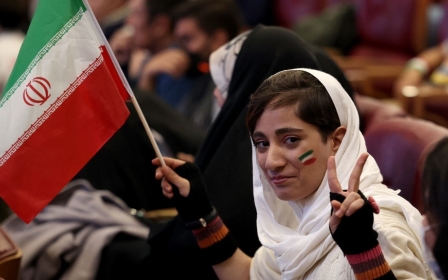Iranian press review: No fanfare for Taliban Tehran embassy move
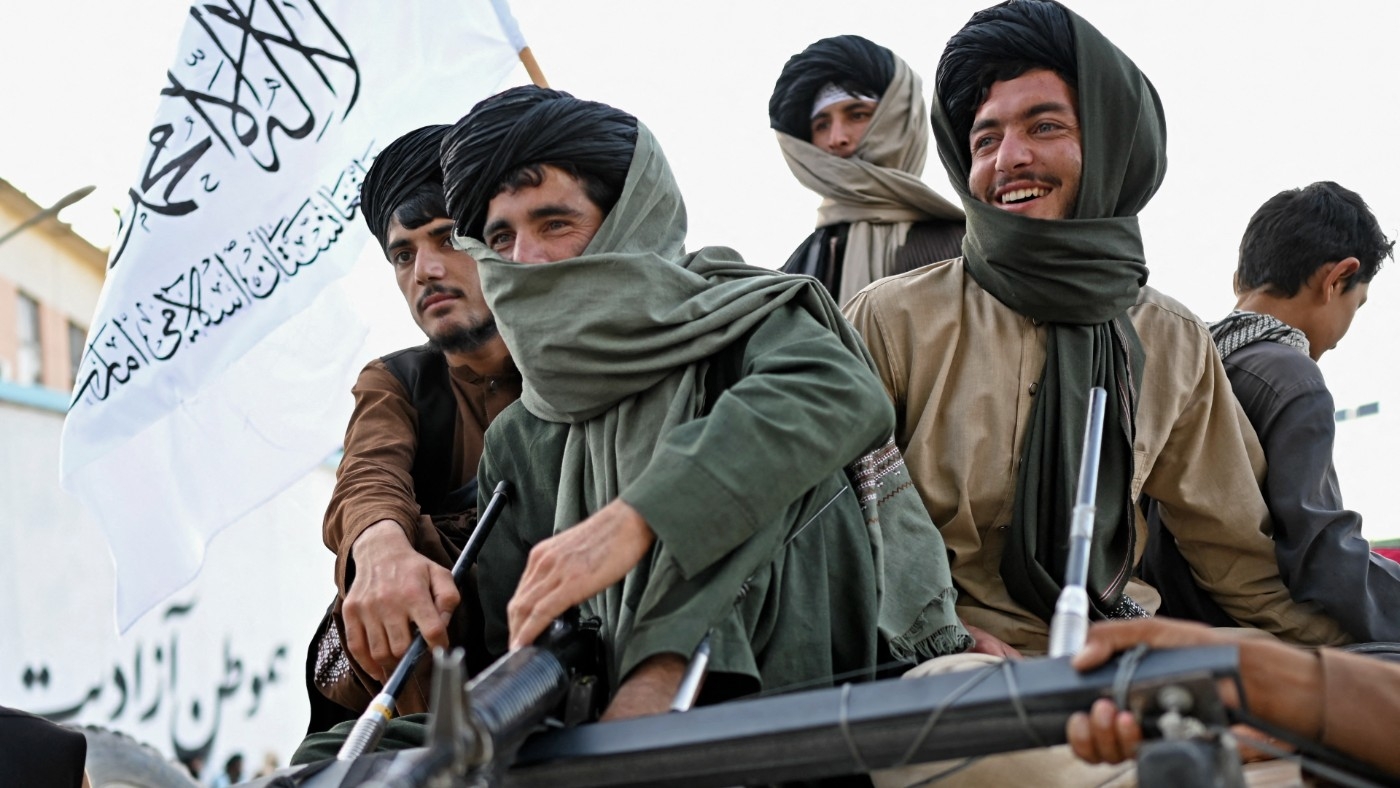
Taliban takes over Tehran embassy
Iran has become the fifth country in the world to accredit Taliban-appointed diplomats, after Afghanistan’s ruling movement took over the country’s embassy on Saturday.
After the fall of Afghanistan's US-backed government in August 2021, Iran did not recognise the Taliban government and the Afghan embassy in Tehran was directed by diplomats appointed before the fall of Kabul.
Saturday’s move was poorly received by much of the Iranian press, with even conservative outlets such as Jomhouri-e Eslami criticising Iran’s foreign ministry for accepting the Taliban mission.
On Tuesday, the daily published a photo of the former diplomats' evacuation from the embassy accompanied with the caption: “As Afghanistan’s embassy in Tehran was handed over to the Taliban, the photo of Ahmad Shah Massoud, the symbol of the Afghan people's fight against the occupiers, was removed from the embassy.”
Ahmad Shah Massoud was an Afghan guerrilla commander who fought against the Soviet Union and then the Taliban until his assassination in 2001.
China, Russia, Turkmenistan and Tajikistan are the only other countries that have accepted the Taliban’s diplomatic missions in their capitals.
Belgian foreign minister accused of hypocrisy
Darya Safai, the only Iranian-born politician in Belgium's parliament, has accused Belgian Foreign Minister Hadja Lahbib of “hypocrisy”, after she met with her Iranian counterpart, Hossein Amir Abdollahian, on 27 February.
“This meeting was embarrassing and unacceptable,” Safai said in a video posted on her Instagram.
“How could she stand beside a person whose hands are stained with the blood of Iranian women, men and children?”
In October, Lahbib cut her hair in a show of solidarity with the anti-establishment uprising that began in Iran after the death of Mahsa Amini in police custody in September.
A US-based Iranian journalist, Masih Alinejad, lambasted Lahbib on Twitter: “Foreign minister of Belgium, Hadja Lahbib, who cut her hair in solidarity with Mahsa Amini and us Iranian women a few months ago, now welcomes our oppressors in Europe.”
'Consider us tourists', says Iranian sociologist
In response to a Ministry of Information and Communications Technology scheme to provide special sim cards to tourists, prominent Iranian sociologist Mohammad Fazeli has urged the government to consider all its citizens as tourists.
Under the new scheme, the communications ministry will sell special sim cards to tourists to provide them with unblocked internet access. Several news websites and social platforms, such as Telegram, WhatsApp and Twitter, are blocked in the country.
“Consider us, the people of Iran, also as tourists,” Fazeli wrote on Twitter. “The only difference is that our stay will, on average, last about 70 years. So if foreign tourists need special sim cards for the few days they stay in the country, we, the long-term tourists, would also need that.”
The news about the special sim card was published days after Russian women were allowed to enter a stadium and watch a football match, while Iranian women were banned from entering the same stadium.
“Giving special sim cards to foreigners is a sad story. We are secondary citizens in our own country. [The government] finds foreigners more trustworthy than Iranians,” said one Iranian Twitter user.
“If foreign tourists have access to unblocked internet on their phones, they will not understand the limitations that Iranians face,” wrote columnist Shadi Khoshkar on the Zoomit website. “This is simply how internet censorship in Iran can be kept hidden.”
Aid helicopter or officials' taxi
A helicopter crash in the southern city of Baft has raised questions about the aid organisation Red Crescent using its helicopters to transport officials instead of medical aid.
Iran's sports minister, Hamid Sajjadi, was seriously injured in the 23 February crash, and one of his deputies, Esmail Ahmadi, was killed.
This accident brought Red Crescent under attack for exploiting public resources for the benefit of officials.
The Hamdeli daily, under the headline: “Air aid or officials' taxi”, criticised the organisation for airlifting Sajjadi to a provincial gathering of “middle-ranking officials” at the sports ministry.
“Where in the world would an aid helicopter be deployed to serve a sports minister who is going to inaugurate an unimportant project?” asked one social media user.
As another social media user observed, it takes little more than an hour to get to Kerman from Baft by car.
*Iranian press review is a digest of news reports not independently verified as accurate by Middle East Eye.
Middle East Eye delivers independent and unrivalled coverage and analysis of the Middle East, North Africa and beyond. To learn more about republishing this content and the associated fees, please fill out this form. More about MEE can be found here.


